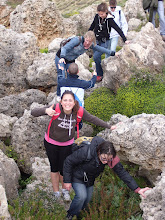The opening of factories, mines, steam engines and railroads meant that people could produce more yet work fewer hours. They were able to move off farms and into towns. Society moved from a system that still used bartering to one that depended more on cash.
THE SOCIOLOGICAL ASPECT OF WORK
Grint defines work like a social activity. But we can say that in the Pre- Industrial period work concerned just the family and sometimes the neighbours but it was the only sociological aspect. While in Post Industrial Era Work becomes something based on world social relationships, because this is the time in which work get in MARKET, the world one.
References to the text:
1) Role of women
Before the industrial revolution the women were expected to work on the land together with the rest of the family and workmen. During the revolution, the women were not allowed in the factories. The housewife was being created. The breadwinners were more important in society. Later on we notice that women and children could work in factories, in the so called non-heavy labour factories like cotton factories were they had to handle the machines. Mostly this was because the men were expected to go to work and the factories needed labour forces. When the men returned form the war it was a quite difficult time at the household. Because the women had taken over the work of the men and they had been prven to be equal. Now all of a sudden they have to give up that. (references to the movie DAENS)
Grint: THE WAR p.3
Today in Post Industrial Era the WAR doesn’t change your life, your work. We aren’t involved in War.
Besides that we also see a that before we had the Country Woman and now we have the City Woman.
The city wife has to do two things, when her husband comes back from work and he was being abusedat work she has to comfort him as well and do her home tasks.
References Grint: THE DIVISION OF WORK
P.10 and the movie: Modern Times- Charlie Chaplin
Pre Industrial: No specialization everyone can help the family and can do the work.
Industrial: a scientific strict specialisation
Like said before the entire family was expected to work on the land. The family lived within the property. When the revolution started we see that the men move to the big cities to work in the factory, were they were promised good working conditions and a good salary for that time. The rest of the family stayed home to work on the land.
3) Urban city - City move (urbanisation)
When the industrial revolution really set forward, we see that the entire family moved to the cities and left their country homes to go and live in poor living conditions at the city. They all lived in what we call industrial towns. The big city movement started. We also noticed that from this moment on the factories were employing as well men as women and even children.
4) Children at work
Children were being used in the factories as well. Although this wasn’t allowed by the government, it was something natural. The children had to work for their families so they could pay all the bills and buy food. They were required to do the small, little things at the factories, were hired to clean the chimneys and others.
5) Machinery
The coming up of the machinery made that also women could start working at the factories to handle them. The machines replaced the labour of the men, whom the employees had to pay much. The women were loved at that time, because the employees didn’t had to pay them that much as men, because they were considered as less worth working powers. Therefore the men could go back home and work on their land with also newly invented machinery to make the hard work lighter.
6) 9 to 5 work
When as before the people went to work on the land at random times, a set working time was being set. The well-know 9 to 5 work was being set. This structured the lives of the people during that time.
Grint: THE IDEA OF TIME
7) Agriculture => capitalism
The most important thing is that a life of agriculture was being replaced by one that consisted of capitalism and industrial work.
Pre-industrial: This is mine, I work for something that it’s my propriety.
Industrial: I work for someone that works for someone else. I can lose my job.
9) FROM PRODUCERS&CONSUMERS TO PRODUCERS WITHOUT POSSIBILITY TO CONSUME PRODUCTS.
10) PUBLIC AND PPRIVATE SPHERE p.20
Pre-industrial: The private and the public sphere stayed together.
Industrial: a strict separation from Public arena in which the worker is exploited, alienated from himself, his personality, and the Private arena in which He is angry, sad, he vents his frustrations from the public arena and in which he can’t have and can’t enjoy prizes for his work.
11) THE TRADE UNION’S NEED
During the Industrial Revolution with all changes that it’s involved, Workers started to feel the need to create trade unions against capitalists.
Pre Industrial: NO COMMON CONSCIOUSNESS because No common problems.
Industrial: The born of a common consciousness against the Common exploitation.





























